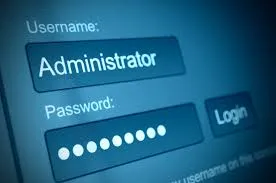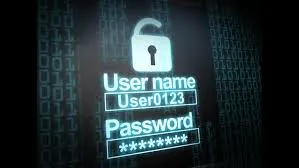
The Dark Side of Technology Uncovering the Truth Behind Stolen Passwords
The advancement of technology has brought numerous benefits to our society. From increased convenience and efficiency to improved communication and access to information, it’s hard to imagine a world without technology. However, with these advancements also come potential risks and threats, such as the increasing issue of stolen passwords. In fact, according to a recent report by Lifehacker, there are currently over 10 billion stolen passwords being traded on the dark web. This alarming number highlights the need for individuals and organizations to take preventative measures and protect their sensitive information. In this article, we’ll dive deeper into the world of stolen passwords, uncovering its origins, implications, and measures to prevent it.
The History of Stolen Passwords

The concept of passwords and their importance in securing information can be traced back to ancient times. For instance, Julius Caesar is famously known for using a substitution cipher to encode his military orders, which required a keyword or secret phrase to decrypt. Fast forward to the 1960s, during the era of mainframe computers, passwords were used to restrict access to sensitive data and systems.
However, it wasn’t until the widespread use of personal computers and the internet in the early 1990s that passwords became an integral part of our everyday lives. With the rapid growth of online services and transactions, more and more people began using passwords to secure their emails, social media, banking, and other accounts. But as technology continued to evolve, so did the methods used to steal passwords.
How Are Passwords Stolen?
There are several ways in which passwords can be stolen, but the most common method is through hacking. Hackers employ various techniques such as phishing, malware, brute force attacks, and dictionary attacks to obtain passwords. These methods target the vulnerabilities in operating systems, software, and networks to gain unauthorized access to sensitive information.
Phishing
Phishing is a fraudulent technique used by cybercriminals to obtain sensitive information, including passwords. It involves sending fake emails that appear to be from reputable sources, asking for personal information such as passwords and credit card numbers. These emails often contain links to fake websites that look similar to the legitimate ones, tricking users into entering their login credentials.
To avoid falling victim to phishing attacks, always double-check the sender’s email address and never click on suspicious links or attachments. Legitimate companies would never ask for your password via email.
Malware
Malware, short for malicious software, is a type of software that is designed to harm or gain unauthorized access to a computer system. Malware can include viruses, worms, Trojans, spyware, and ransomware. Once installed on a device, it can record keystrokes, take screenshots, and capture login credentials, including passwords.
To protect against malware, it’s crucial to have up-to-date antivirus software and to be cautious when clicking on links or downloading files from unknown sources.
Brute Force Attacks
A brute force attack is a trial and error method used by hackers to crack passwords by trying every possible combination until they find the correct one. This method requires powerful computing resources and can take a significant amount of time, but with advancements in technology, it has become easier and faster for hackers to execute.
To prevent brute force attacks, it’s essential to use strong and unique passwords that are difficult to guess or crack. This includes using a combination of uppercase and lowercase letters, numbers, and special characters.
Dictionary Attacks
Similar to brute force attacks, dictionary attacks use a set of commonly used words and phrases to try and guess a password. This method is more efficient than brute force attacks as it narrows down the number of possibilities and can be done with less computing power.
To protect against dictionary attacks, avoid using common words or phrases as passwords and opt for longer and more complex combinations.
The Dark Web and Password Trading

The dark web, often mistakenly referred to as the deep web, is a hidden part of the internet that is not indexed by search engines and requires special software to access. It’s often associated with illegal activities due to its anonymity and lack of regulation.
One of the biggest issues on the dark web is the trade of stolen information, including passwords. Hackers often sell or trade stolen passwords in bulk on underground forums and marketplaces, making it easily accessible to other cybercriminals. These passwords can then be used for various malicious activities, such as identity theft, fraud, and blackmail.
The Implications of Stolen Passwords
The consequences of stolen passwords can be devastating for both individuals and organizations. Here are some of the potential implications of having your password stolen:
- Identity theft: With access to your personal accounts, hackers can pose as you and steal your identity, gaining access to your finances and committing fraud.
- Financial loss: If your banking or credit card details are compromised, hackers can use them to make unauthorized transactions, leading to financial loss.
- Reputation damage: In the case of organizations, having sensitive information, such as customer data, stolen can severely damage their reputation and trustworthiness.
- Data breaches: A single stolen password can give hackers access to an entire system, allowing them to manipulate or delete data, exposing it to the public or competitors.
How to Protect Your Passwords?

With the increasing number of threats and risks, it’s crucial to take proactive measures to protect your passwords and sensitive information. Here are some tips to help you strengthen your online security:
Use Two-Factor Authentication (2FA)
Two-factor authentication, also known as 2FA, adds an extra layer of security to your accounts by requiring a second form of verification, usually a code sent to your phone or email. This makes it harder for hackers to gain access, as they would need both your password and the authentication code.
Use a Password Manager
A password manager is an application that stores and manages your login credentials in an encrypted format. It also allows you to generate strong and unique passwords for each account, making it easier to remember and less vulnerable to attacks.
Be Mindful of Where You Share Your Passwords
Never share your passwords with anyone, whether it be a friend, family member, or even someone claiming to be from a legitimate company. Also, avoid using the same password for multiple accounts, as it increases the risk of multiple breaches if one of your accounts is compromised.
Keep Your Software Up-to-Date
Software updates often contain security patches that address vulnerabilities and protect against potential threats. Therefore, it’s crucial to keep all your devices and software up-to-date to ensure the best protection against stolen passwords.
Regularly Change Your Passwords
It’s recommended to change your passwords regularly, at least every 3-6 months, to minimize the impact of a potential breach. This way, if a password is stolen, it will not be valid for an extended period.
Conclusion: The Importance of Protecting Your Passwords
In today’s digital age, passwords have become an essential aspect of securing our personal information. However, with the ever-increasing number of threats and vulnerabilities, it’s no longer enough to rely on simple, easy-to-guess passwords. It’s crucial to understand the various methods used to steal passwords and take proactive measures to protect them. By implementing the tips mentioned in this article, you can significantly decrease the chances of falling victim to stolen passwords and minimize the potential consequences. Remember, staying vigilant and taking necessary precautions is key to safeguarding your sensitive information in the ever-evolving world of technology.